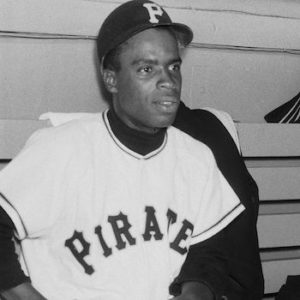
Curt Roberts
*Curt Roberts was born on this date in 1929. He was a Black baseball player.
Curtis Benjamin Roberts was a native of Pineland, Texas, but was raised in Oakland, California. He attended McClymonds High School in West Oakland, the same high school future professional athletes Frank Robinson, Vada Pinson, Bill Russell, and Curt Flood all went to within a few years of each other. Soon after finishing high school at 17, Roberts began his professional career with the Kansas City Monarchs in the Negro Leagues.
He played four seasons (1947–1950) with the Monarchs, where his teammates included Satchel Paige, Hilton Smith, Buck O'Neil, and Elston Howard. Roberts was signed by the Boston Braves in 1951 at the recommendation of scout Andy Cohen, who saw him play in the Mexican League during the 1950 off-season. They sent Roberts to their minor league affiliate in the Western League, the Denver Bears, where Cohen was the manager. Before the 1952 season, the Bears became an affiliate of the Pittsburgh Pirates. As part of a working agreement between the Braves and the Pirates, Roberts became a member of the Pirates organization for a $10,000 sum. After two seasons in the Pirates farm system, Roberts was the first Black player for the Pirates in 1954. After becoming the starting second baseman for the Pirates in his rookie year, Roberts' playing time decreased, and he was out of the Majors within three seasons. He then played for multiple teams in the minor leagues before retiring from professional baseball in 1963.
Roberts was married with six children. He was a University of California, Berkeley security guard when his baseball career ended. Roberts was considered short by Major League standards, standing 5 ft 8 in. Roberts was a skilled defensive player, but he could not hit with enough proficiency to remain in the major leagues. He died on November 14, 1969, at the age of 40, in Oakland, California, when he was hit by a drunk driver while changing a flat tire on his car. A major piece written by Pittsburgh Post-Gazette journalist Ed Bouchette discussed Roberts' career and struggles, calling him a "forgotten pioneer." Before the piece, most of Roberts' old teammates were unaware that he had died nearly 20 years earlier. His son Curt Roberts Jr. supposedly was working on a book about his father's life in 1987.
Despite Roberts' short major league career, he paved the way for other Black players to debut for the Pirates, the most notable of whom was the future Baseball Hall of Famer Roberto Clemente. He befriended Clemente, teaching him how to handle the racial abuse and the huge pressure that Roberts had suffered from the Pirates. That helped Clemente ease his transition from the Dodgers minor league system, where they had a decent number of black and brown (Latin) players, to the main roster of the Pittsburgh Pirates, in which only he, Roberts, and third baseman Gene Baker were Black. Journalist Tom Singer of MLB.com mentioned that Roberts' legacy arose mainly from his unsuccessful career with the Pirates. Singer claimed because Roberts was a "flop," showed that the public perception of black players having to be a "superstar" to be a member of a Major League club was incorrect, thus making the integration process more "humanized" and easier for Black players.
Four of the eight previous players who broke the color barrier for their respective teams were later elected to the Hall of Fame, and the other four were stars in their own right. In 1997, 28 years after his death, the Pittsburgh Pirates honored Roberts as part of the festivities for Jackie Robinson Day. Roberts was honored again in 2006 for the opening of the Pirates Highmark Legacy Square Negro League exhibit in PNC Park. The families of several Negro League players, including Roberts, attended the ceremony. A park in his hometown of Pineland, Texas, was dedicated in his honor in 2007.